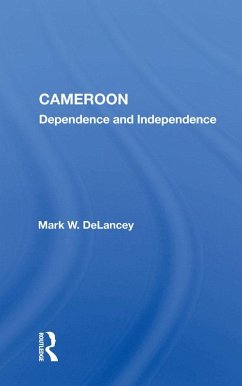
Social Stakes of Privatizations in Cameroon (eBook, ePUB)
Case of the Cameroon Development Corporation (CDC)
Versandkostenfrei!
Sofort per Download lieferbar
11,95 €
inkl. MwSt.
Weitere Ausgaben:

PAYBACK Punkte
6 °P sammeln!
The devaluation of the CFA franc and the early 90s mark the second wave of privatizations recommended by international financial institutions. The transition from a system of "social goals" to that of private capital becomes more and more evident. From the peoples' point of view, the ongoing reforms imposed from outside often do not take into account the specific situation of each country. Therefore, the question posed by privatization is: how can a government conciliate the need to privatize a public company with that of the consideration of the claims of the people? This is the fundamental q...
The devaluation of the CFA franc and the early 90s mark the second wave of privatizations recommended by international financial institutions. The transition from a system of "social goals" to that of private capital becomes more and more evident. From the peoples' point of view, the ongoing reforms imposed from outside often do not take into account the specific situation of each country. Therefore, the question posed by privatization is: how can a government conciliate the need to privatize a public company with that of the consideration of the claims of the people? This is the fundamental question behind this thinking. We chose as example the case of the Cameroon Development Corporation (Cdc). This is justified by the fact that, as announced more than ten years earlier, privatization drags on, though it (Cdc) appears third on the list of fifteen public companies and parastatals to be privatized. After choosing to sell its four branches separately (banana, tea, rubber, palm oil), the Cameroonian government succeeded in October 2002 to sell the tea industry to the South African group Brobon Finex, which created the Cameroon Tea Estates (Cte). This is, to date, the only branch privatized. With its 13,000 employees, the first agro-industrial company in Cameroon, also first employer after the State, is a major stake. Also, the planned dismantling raises much concern. Our intention is to see how far and to what extent African states in general, and the Cameroonian State in particular, may accept the collaboration with representatives of the civil society in the game and the stakes of privatization policies, in the search for a social compromise.
Dieser Download kann aus rechtlichen Gründen nur mit Rechnungsadresse in A, D ausgeliefert werden.













